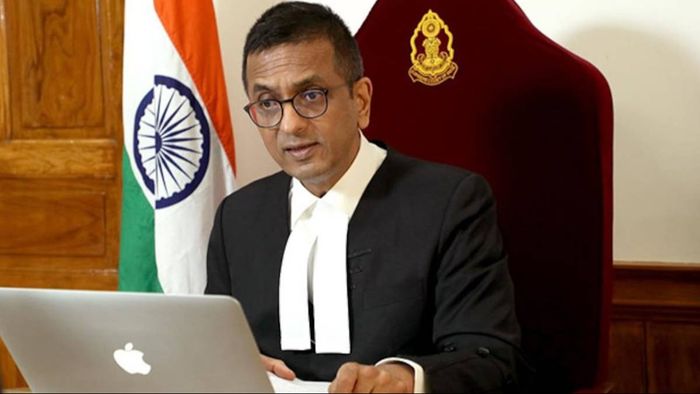CJI refuses to respond to criticism of Article 370 verdict, defends judiciary's commitment to constitution
The Chief Justice of India (CJI) has declined to react to criticism over the verdict on Article 370, defending the judiciary's commitment to the constitution.

- Jan 01, 2024,
- Updated Jan 01, 2024, 9:42 PM IST
Chief Justice of India DY Chandrachud stood firm in his refusal to engage in a public discourse on the Supreme Court's recent verdict upholding the scrapping of Article 370. The CJI stated that judges make decisions "according to the Constitution and the law" and expressed reluctance to respond to criticism from various quarters.
The five-judge Constitution Bench, led by Chief Justice Chandrachud, on December 11, affirmed the validity of the central government's decision to revoke the special status of Jammu and Kashmir on August 5, 2019. The judgment, articulated by the CJI, asserted that the court cannot rule on the government's policy decisions and reiterated Jammu and Kashmir's integral status within India.
Despite the Court's pronouncement, the verdict faced critique from eminent jurists, including Fali Nariman and former Supreme Court judge Rohinton Nariman. Fali Nariman termed the decision as an "incorrect appreciation of the Constitution," while Rohinton Nariman expressed his concern, stating that the Supreme Court "allowed this unconstitutional act to go forward."
In response to the criticism, Chief Justice Chandrachud maintained, "We decide according to the Constitution and the law. I don't think it will be appropriate for me to respond to the criticism or mount a defense to my judgment." He asserted that the reasoning behind the decision is detailed in the signed judgment, and he would leave it at that.
Addressing the freedom of speech and expression, CJI Chandrachud acknowledged that people are entitled to critique, criticize, or appreciate judicial decisions. "We have a Constitution which protects the right to freedom of speech and expression," he said. "Judges who decide on a case speak through their judgment, which, once delivered, becomes public property."
The Chief Justice highlighted the societal importance of a free and open dialogue, emphasizing that judgments become public property, serving the nation as a whole. The top court had also ordered the restoration of Jammu and Kashmir's statehood "at the earliest" and set a September 30, 2024 deadline for holding assembly elections in the region.